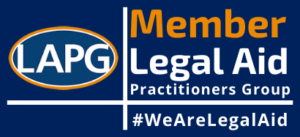Claims for housing disrepair
Approximately 4.7 million UK households live in rented accommodation which is almost a fifth of the population. The quality of accommodation varies and, contrary to some earlier surveys, the local authorities and social housing landlords are falling behind, possibly because of the budget cuts they have had for many years.
Private landlords are in most cases trying to comply with ever-increasing demands on compliance and provide a reasonable alternative to home ownership. Most landlords provide good accommodation, but things don’t always go to plan. Maintenance issues can cause health problems, put tenants at risk, or cause high and sustained levels of stress and suffering. Whilst most maintenance problems can be resolved by a timely response, some are ignored and can amount to housing disrepair. They include the following:
- Condensation, damp and mould;
- Plants/vegetation growing out of the exterior walls/damaged brickwork resulting in damp and leaks;
- Blocked or broken gutters, drains and sewage pipes;
- Faulty boilers or gas and electric heating systems;
- Faulty water supply;
- Unsafe electrical or gas installations/lack of compulsory inspections/maintenance
- Unsafe stairs or flooring
What are the landlord’s duties?
All landlords have a duty to maintain their properties and ensure that they are well maintained and fit for habitation. Landlords have a right to enter their properties and send contractors to undertake repairs. They owe a duty of care to tenants, members of their household and visitors to the property. These defects must be limited to the repairs landlords can be reasonably expected to undertake but do not include hidden defects that were not obvious or easy to identify either at the start or throughout the tenancy period. They also do not include the defects caused by the tenant’s failure to keep the property in a reasonable state which is normally included in their agreements or defects by design.
The duty is dependent on the factual analysis of each case and reliant on the landlords’ knowledge about the material defect. The duty of care is both objective and reasonable, so the landlords are unlikely to be liable for injuries that were not reasonably foreseeable or preventable. Landlords should undertake periodic inspections of their property and assess possible defects even if they have not been reported by the tenants. After these assessments the landlords are likely to have a genuine or implied knowledge of the defects and may be liable for any injuries the defects have caused.
Do asylum seekers have rights to have repairs undertaken in their accommodation?
Recognised refugees and those who have been given other forms of leave to remain, have similar rights to British citizens but asylum seekers awaiting a decision on their status have very limited access to public sector housing including in the cases of homelessness. Asylum seekers and those fighting deportation may have access to supported housing from the National Asylum Support Service (NASS). NASS gives support to those seeking asylum and refused asylum-seekers who are destitute and or they are seeking to leave the UK but are unable to do so because of the objective insurmountable obstacles, medical condition or because a failure to provide accommodation would breach their human rights.
The NASS accommodation has been frequently found to fall way below the minimum legal standards and the state of accommodation. People in NASS accommodation may be entitled to claim damages for injuries caused by disrepair. Asylum seekers and other persons subject to immigration control are excluded from entitlement to social housing but may receive assistance if they have care needs identified and assessed by the local authorities.
What is the cause of action for damages claims arising from housing disrepair?
Private law claims can be pursued for damage to the tenant’s belongings, personal injury, loss of income, damage to health and inconvenience such as disruption to the tenant’s daily routine or inability to have quiet enjoyment of their home. As mentioned above, the action can be taken not only by tenants but also members of their households, and visitors. Damages can be sought from the landlord if they fail to carry out repairs within a reasonable time as they must be given an opportunity to remedy the problem and offer alternative arrangements such as reduced rent, or reasonable compensation for the quantifiable loss. Legal action should not be considered before all efforts have been made to find a mutually acceptable solution with the landlord.
Those who have to issue proceedings can, in successful claims, receive general damages commensurate to their loss. They will be expected to provide evidence such as proof of possession of the damaged items evidenced by the receipts or, in cases involving damage to health or injury, medical evidence.
Landlords can be sued for special damages covering the costs of damage to other items such as soft furnishings as well as cleaning, temporary accommodation and associated costs.
In more serious cases, landlords may be liable to pay aggravated damages for the landlord’s unreasonable conduct or behaviour. In a limited number of claims exemplary damages may be sought if it can be shown that the landlord’s conduct has been oppressive, arbitrary or unconstitutional.
Practical problems
Landlords, particularly local authorities, large social housing providers and the Home Office have access to good legal representation so individual tenants and others, owing to the limited availability of legal aid, may not be able to match them. Complex litigation may be expensive and risky so it is important to seek legal advice early and find lawyers willing to accept instructions on a ‘no win-no fee basis’. Tenants may also wish to check their existing insurance policies as the cost of legal representation may be included.
Unscrupulous landlords could use various methods of pressure to discourage claims against them whilst the Home Office may transfer potential claimants to different locations, avoid or ignore requests for disclosure of evidence and seek to resolve such issues by legitimate deportation proceedings.
Deadlines
Claims for personal injury must be issued within three years from the date of the injury. Other claims based such as negligence can be pursued within six years from the date of the incident.









